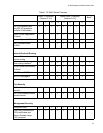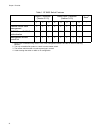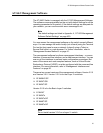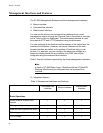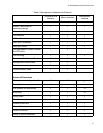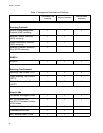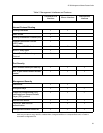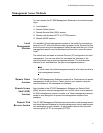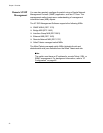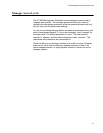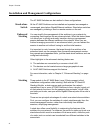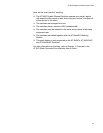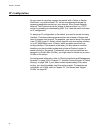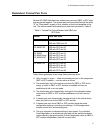
AT-S63 Management Software Features Guide
41
Management Access Methods
You can access the AT-S63 Management Software on the switch several
ways:
Local session
Remote Telnet session
Remote Secure Shell (SSH) session
Remote web browser (HTTP or HTTPS) session
Remote SNMP session
Local
Management
Sessions
You establish a local management session to the switch by connecting a
terminal or a PC with a terminal emulator program to the Terminal Port on
the front panel using the management cable included with the unit. A local
management session must be performed at the switch, hence the name
“local.”
The switch does not need an Internet Protocol (IP) configuration for local
management. You can use either the command line interface or the
menus interface from a local management session. The web browser
interface is not available from this type of management session.
Note
In most cases, the initial management session of a switch must be a
local management session.
Remote Telnet
Sessions
The AT-S63 Management Software comes with a Telnet server for remote
management of the unit from a Telnet client on your network using the
menus interface or the command line interface.
Remote Secure
Shell (SSH)
Sessions
Also included in the AT-S63 Management Software is a Secure Shell
(SSH) server for remote management from a SSH client on your network.
An SSH management session is similar to a Telnet management session
except it uses encryption to protect the management sessions from
snooping.
Remote Web
Browser Session
The AT-S63 Management Software also comes with a web browser server
and a web browser interface for remote management using a web browser
at a workstation on your network. A web browser session can be either
non-encrypted (HTTP) or encrypted (HTTPS).



